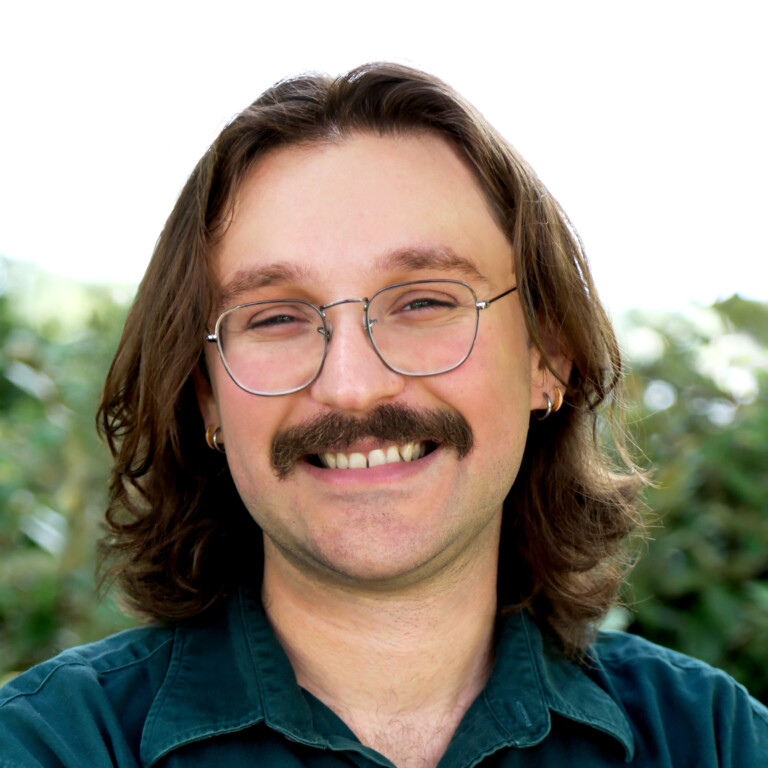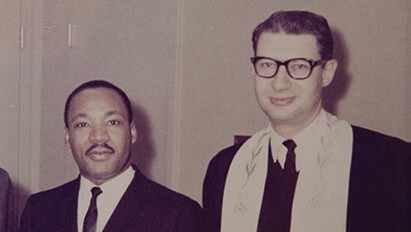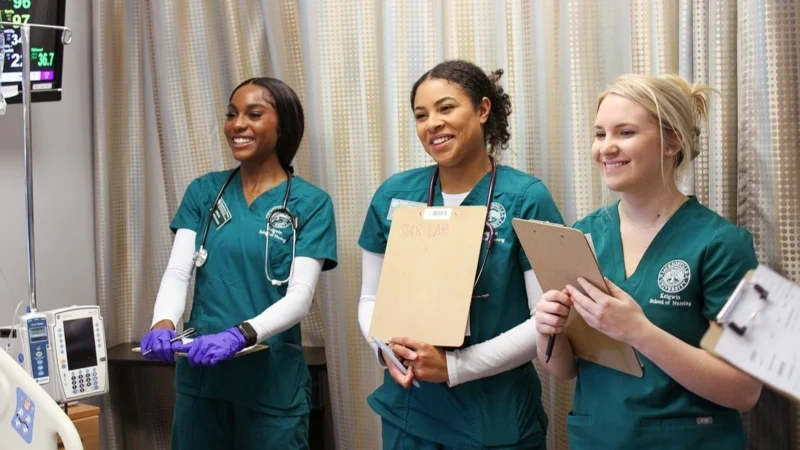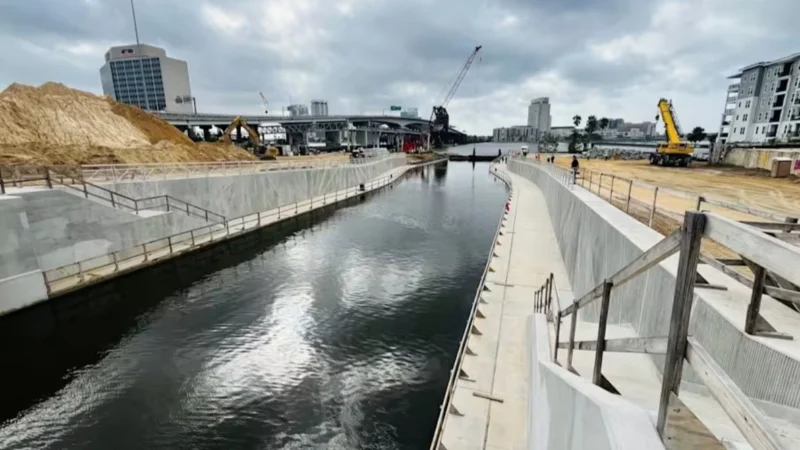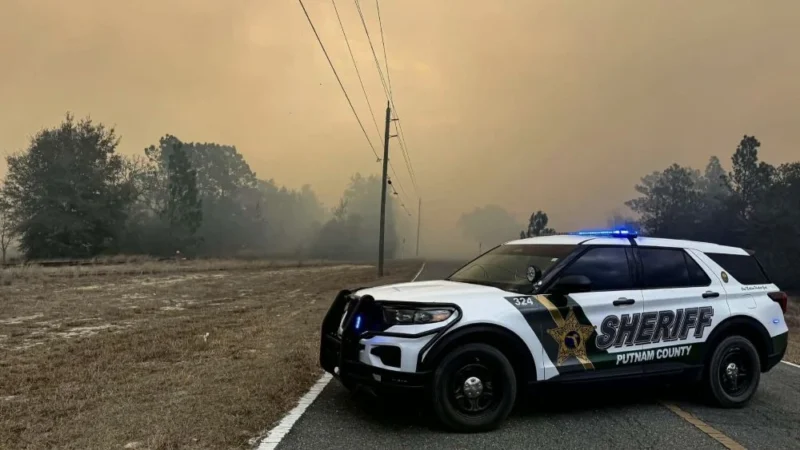Israel Dresner was just 18 years old when he was arrested for the first time. It was 1947, and the man who would go on to be known as America’s most arrested rabbi was protesting the British government’s decision to turn away a boat full of Holocaust survivors from seeking refuge in British-occupied Palestine.
Dresner was arrested three more times — in 1961, 1962 and 1964 — before his fateful arrest in St. Augustine on June 18, 1964, during a demonstration with the Rev. Martin Luther King Jr. Dresner and 15 other rabbis were among those protesting racial segregation at the Monson Motor Lodge on Avenida Menendez.
Amid their arrest, other activists jumped into the lodge’s pool for a swim-in, and when they refused to get out of the water, hotel owner James Brock poured acid into the water.
A photo of Brock pouring acid into the pool drew national media attention, and when the protesters were released from jail the next day, the U.S. Senate passed the Civil Rights Act, ending a 72-day filibuster that had held it up.
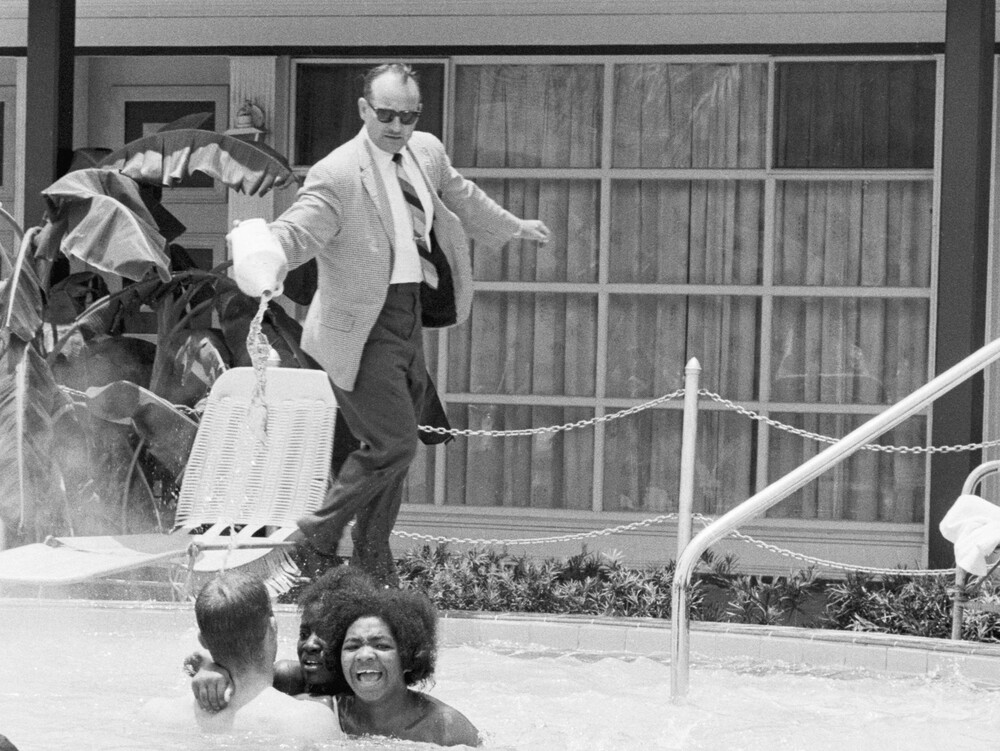
Dresner’s son Avi grew up hearing the stories, but after 60 years, he visited St. Augustine this month for the very first time, retracing his dad’s steps, as he filmed scenes for a documentary about his father’s legacy that he’s been working on since 2019.
He went to the site of his dad’s arrest — where the original lodge was demolished decades ago and a Hilton Hotel stands today. He visited the remnants of the jail where his dad was held. And he visited St. Paul AME Church, where King had invited his dad to speak.
“I’m standing there at the pulpit that my father stood at, looking at the stained glass windows — of Jesus, no less — that my father would have been looking at, at the same pews,” Dresner tells Jacksonville Today. “That was incredibly personal. Meaningful. I almost broke down in the church.”
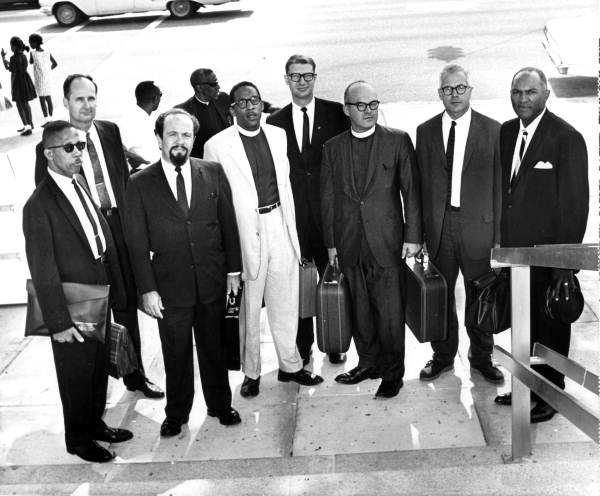
Rabbi Dresner died in 2022, and it’s been his son’s mission since even before then to share his father’s legacy. Avi Dresner, an award-winning journalist, lives in Massachusetts.
While in the area, he attended and spoke at an exhibit about Jewish involvement in the Civil Rights Movement at the Frisch Family Holocaust Memorial Gallery in Jacksonville, and he toured St. Augustine with the head of the St. Augustine Jewish Historical Society — and a friend of his father’s — Rabbi Merrill Shapiro.
For Shapiro, being able to meet Dresner’s son and take him around St. Augustine was an emotional experience.
I was able to bridge the generations, and it was exciting to bring him back to the place,” he tells Jacksonville Today.
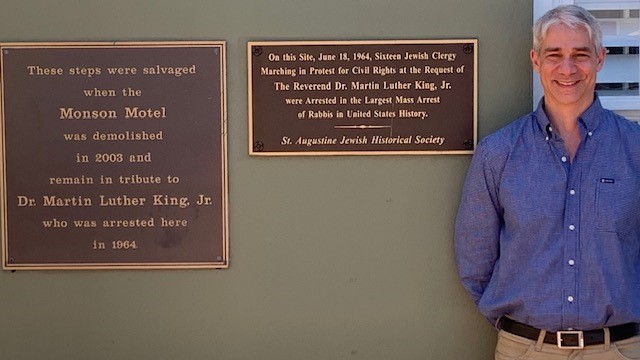
‘Justice, justice shall you pursue’
The arrests at the Monson Motor Lodge marked the largest mass arrest of rabbis in American history. Dresner says nowadays, amid ongoing racial reckonings and visible antisemitism in America, it’s more important than ever to remember the event for exactly what it was: a landmark moment for the alliance between Jewish and Black civil rights advocates.
Avi Dresner wasn’t alive then. He was born in 1969, nearly a year after King’s assassination in Memphis. But all his life, he says, his dad’s dedication to justice was pivotal.
That’s because Rabbi Dresner’s involvement in social justice and advocacy didn’t end in St. Augustine. He was arrested again in 1980 while protesting apartheid outside of the South African consulate in New York, and, until his last days, the rabbi was a staunch critic of Israeli President Benjamin Netanyahu.
“If he had a platform, he was going to use it to speak out against whatever form of injustice he saw at the moment,” Avi Dresner says.
Including, Dresner shares, at his 1982 bar mitzvah. His father’s speech at the reception included 45 minutes decrying Israel’s recent invasion of Lebanon.
His advocacy won him many friends, like civil rights leader Ralph Abernathy, whose daughter Donzaleigh remains friends with Avi. But it made him enemies, too.
“We got a bullet in the back window of my mom’s car when I was an infant over my dad’s outspokenness over school prayer,” Dresner says. “You either loved him and agreed with him or hated him and disagreed with everything.”
Dresner says his dad’s unceasing drive to speak truth to power instilled a strong moral compass in him from a young age.
“I think that I certainly grew up with a very, very strong sense of that very Jewish mission of ‘tzedek tzedek tirdof,’‘ Justice, justice shall you pursue,’” he says.
He says his goal with the documentary is to continue what King said was the universe’s moral bent toward justice.
“To me, my dad was the clutch receiver King would put in the game when it was third and long. He knew he could count on him. My dad can’t move that ball down the field anymore, but I can,” Dresner says. “The documentary, for me, is a piece. It’s continuing the work my dad dedicated his life to. If I can use his example as a goad towards further action, then mission accomplished.”
COVID-19 set things back, and the documentary is still several years away from being seen by audiences, but it’s not the only way Dresner hopes to honor his dad’s legacy. He also has co-written a biopic that is now in the hands of a big-time Hollywood producer, he says. And he’s already thinking about who might play his dad. His top picks? One-time Spider Man actor Andrew Garfield or The Office’s John Krasinski.
Learn more about local Civil Rights history
In Jacksonville, the Frisch Family Holocaust Memorial Gallery’s We Could Not Be Silent exhibit is on display now, with an Open Gallery Day from noon to 3 p.m. on Sunday. The gallery is at The LJD Jewish Family & Community Services at 8540 Baycenter Road. Its regular hours are 8:30 a.m. to 5 p.m. Monday through Friday.
In St. Augustine, a number of events are planned as part of recognition for the 60th anniversary of the Civil Rights Act’s passage. The St. Augustine Jewish Historical Society will host its 11th annual commemoration of the mass arrest of rabbis at noon June 18, at the former site of the Monson Motor Lodge, the Hilton Hotel at 32 Avenida Menendez.
Editor’s note: This story was updated May 29, 2024, to include a comment from Rabbi Merrill Shapiro, the head of the St. Augustine Jewish Historical Society, and to update the attribution for one of the photos.
